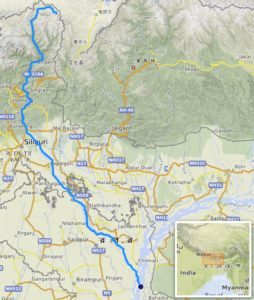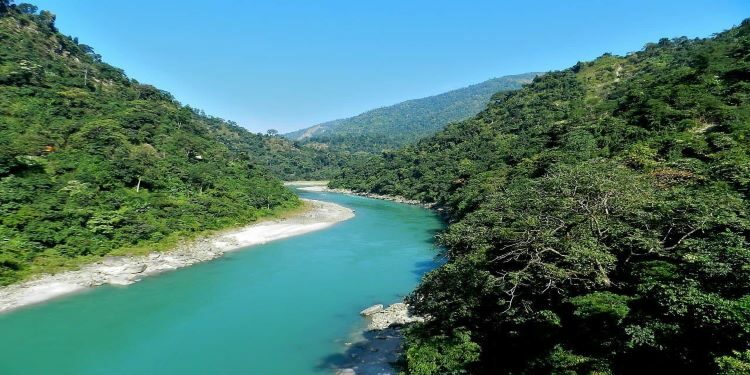In news : Recently, the Prime Minister of Bangladesh reiterated Bangladesh’s long-pending request for concluding the interim agreement on the sharing of the waters of the Teesta river. And Indian side requested the same on Feni river
Key updates
- Recalling earlier discussions, the Prime Minister of Bangladesh reiterated Bangladesh’s long-pending request for concluding the interim agreement on the sharing of the waters of the Teesta river.
- She underscored that to alleviate the sufferings and save the livelihoods of millions of people dependent on the Teesta river basin, it is necessary that Bangladesh receives its fair share of the Teesta waters, the draft agreement of which has already been agreed upon by both Governments in January 2011.
- Prime Minister Narendra Modi reiterated India’s sincere commitment and continued efforts to conclude this agreement, in consultation with the relevant stakeholders.
- The Indian side also requested for early finalization of the draft of the interim agreement for sharing of water of Feni River, pending with the Bangladesh side which had been agreed upon by both sides in 2011.
- The two leaders directed their respective Ministries of Water Resources to work towards an early conclusion of the Framework of Interim Agreement on sharing of waters of six common rivers, namely, Manu, Muhuri, Khowai, Gumti, Dharla and Dudh Kumar.
History of agreement on Teesta river
- The Teesta is an important river for Bangladesh. Tista River, a tributary of the Jamuna River (Brahmaputra River), flowing through India and Bangladesh.
- It helps in irrigation in the northern parts of Bangladesh, which is often considered as the granary of the country.
- In July 1983, there was a temporary agreement between India and Bangladesh on the Teesta. It gave 39% of the water to India and 36% to Bangladesh, while the rest was to flow free.
- The trouble was that this was only a two-year agreement. After that, gradual decline in water flow, particularly in summer, has complicated the situation.
- Subsequent agreement drafts have suggested similar shares, but they remain drafts
- Water is a state subject in India. The issue of Teesta river water could not be solved because of the non-cooperation of the West Bengal Government.

Feni river & history of agreement
- The Feni river, which forms part of the India-Bangladesh border, originates in the South Tripura district, passes through Sabroom town on the Indian side, and meets the Bay of Bengal after it flows into Bangladesh.
- According to the Indian government press release, there has been no water-sharing agreement between the countries on the Feni previously.
- The dispute over the sharing of the river water has been long-standing.
- It was taken up between India and Pakistan (before the independence of Bangladesh) in 1958 during a Secretary-level meeting in New Delhi.
Memorandum of Understanding (MoU) between India and Bangladesh on Feni river
In 2019, Union Cabinet approved an Memorandum of Understanding (MoU) between India and Bangladesh on the withdrawal of 1.82 cusecs (cubic feet per second) of water from the Feni river by India for a drinking water supply scheme for Sabroom town in Tripur.
















